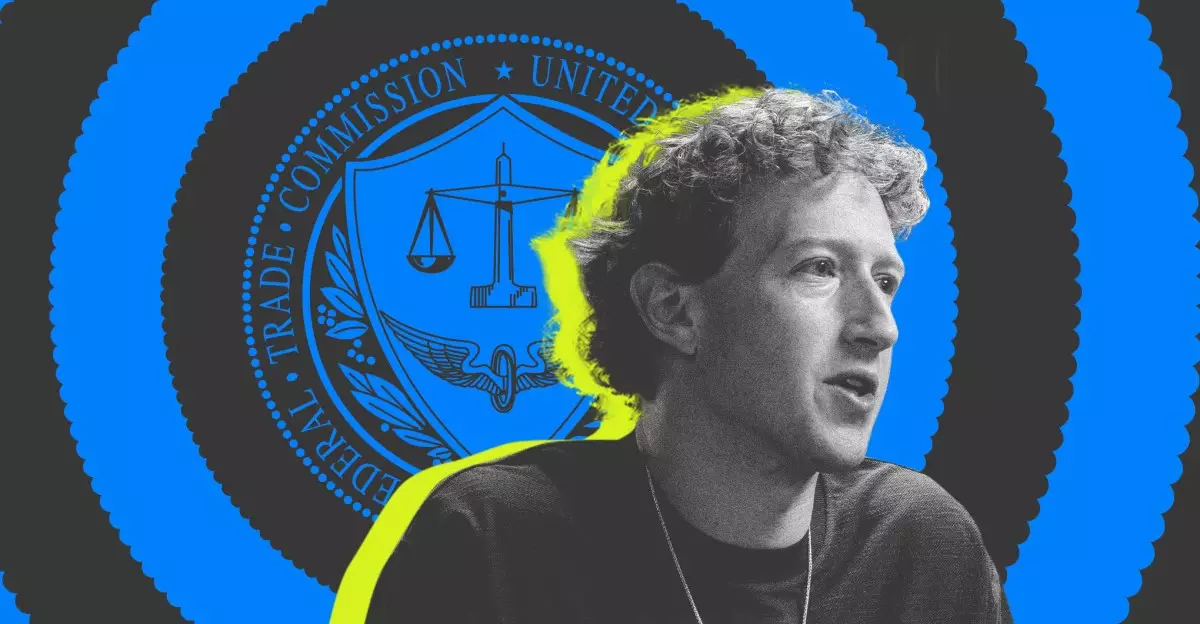Mark Zuckerberg, the founder of Meta, has continually wrestled with decisions that could have led the company down vastly different paths. His testimonies in the ongoing federal antitrust case paint a compelling narrative—one that encompasses not just corporate growth but the broader implications of his choices in shaping social media. Zuckerberg’s leadership style and willingness to explore unconventional ideas have been pivotal in defining the social networking landscape. But what if those thoughts had evolved differently? What if Zuckerberg had taken the leap to make Instagram an independent entity or offered a staggering $6 billion to acquire Snapchat?
This exploration into alternate futures presents not only a fascinating look at the tech industry but also underlines the unpredictable nature of innovation itself. Zuckerberg’s recent court appearances reveal a disciplined mind that’s both agile and introspective, challenging the notion that tech titans operate purely on confidence and authority. Instead, these snapshots of decision-making suggest a leader engaged in a series of calculated risks and missed opportunities.
The FTC’s Quest for Market Control
The Federal Trade Commission (FTC) has embarked on a comprehensive quest to dissect Meta’s market influence, probing the concept that the conglomerate squashed potential competition by acquiring Instagram and WhatsApp. The agency’s theory posits that these acquisitions were strategic moves designed to obliterate nascent threats to their market share. It leans heavily on the notion that Meta does not merely operate within the realm of social media but wields monopoly power that limits consumer choices, especially in the domain of personal networking services.
Zuckerberg’s efforts to redefine the boundaries of this marketplace underlines his belief in a fluid competitive landscape. In his statements, he acknowledges the existence of formidable competitors like TikTok and YouTube, which serves to challenge the FTC’s restrictive narrative. Herein lies the friction; two opposing viewpoints trying to define what social networking means in an era of rapid technological change. Could the FTC’s contention that Meta stymies competition be seen as an echo of its own inability to adapt to new forms of social interactions?
Imagined Futures: The Cost of Industry Decisions
Zuckerberg’s courtroom reflections bring to light some tantalizing alternate realities. For instance, his admission that he might have accelerated Snapchat’s growth had Spiegel accepted his buyout offer highlights a missed opportunity not just for Meta but for the evolution of social media itself. Imagine a world where Snapchat remained a strong competitor under Meta’s umbrella, perhaps altering the trajectory of both platforms. Instead, the landscape is one where Snapchat evolved into its unique empire, while Meta holds onto Instagram like a crown jewel, battling allegations of monopolistic practices.
Moreover, Zuckerberg’s bizarre notion in 2022 of erasing user friend lists to foster fresh engagements showcases a willingness to experiment that could redefine user experiences. This radical approach also brings up critical discussions about user autonomy and emotional connections tied to social media, echoing ongoing debates in technology circles about ethics and user well-being.
The Fine Line Between Innovation and Control
The crux of Zuckerberg’s legal battles extends beyond monopolistic practices; it raises questions about ethics, innovation, and the long-term impact of tech companies on society. A significant thread woven through his testimony is the idea that increased advertisement loads might stem from a lack of alternatives in the social networking space. This is particularly troubling, as it indicates a shift from community building to revenue generation. It forces us to contemplate whether engagement-driven platforms can actually enrich lives or merely exploit them for financial gain.
Zuckerberg’s internal conversations with top executives also reveal a profound sense of urgency born from fear of being outpaced by competitors. It begs the question: at what point does the drive to remain on top infringe upon the rights or experiences of users? The ongoing trial reveals a man in turmoil, torn by the constant need to innovate while wrestling with responsibility toward the community that has come to depend on his platforms.
A Broader Reflection: What We Stand to Lose
The tension between regulation and innovation that Zuckerberg faces in his testimony is emblematic of a broader issue affecting the tech landscape. In striving toward a future where Meta retains its stronghold, there’s a haunting question lingering in the air: what transformative innovations are stifled for the sake of maintaining monopolistic status?
Zuckerberg may claim monopoly status is a fallacy, but it’s also essential to consider that ongoing litigation, driven by regulatory bodies fighting for a fair marketplace, can also encourage genuine innovation. If we continue to accept the monopolistic status quo simply because it’s “working,” we risk stagnation in creativity that can lead to a richer, more diverse online ecosystem. In examining the what-ifs of Meta’s journey, one must ponder at what cost success is achieved.


Leave a Reply